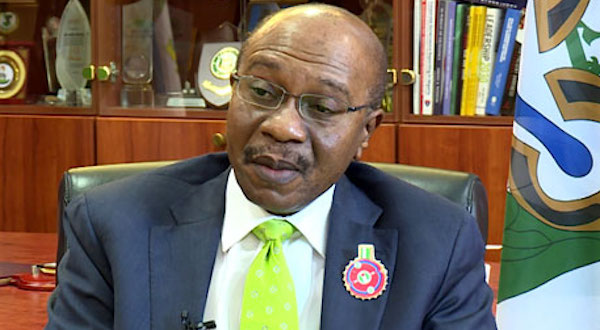Unless urgent steps are taken to address the myriads of challenges confronting the country, Nigerian citizens would continue to wallow in poverty, hunger, insecurity and division,
chairman of Nigerian Economic Summit Group(NESG) Mr. Asue Ighodalo, has said.
He also advised the three tiers of governments to take deliberate
and focused steps to transform the economy, adding that Nigeria would be left far behind by several emerging countries in Africa and the world at large.
The Nigerian Economic Summit,he said, has been compelled to call for collective will, capacity, resources and commitment of all leaders in the governing class, in business and in civil society to rise to the occasion to transform Nigeria
He spoke at the opening of the 27th Nigerian Economic Summit(NES#27), with the theme,”Securing our Future: The Fierce Urgency of Now,”
He added: “The fierce urgency of now implies that unless we take deliberate
and focused steps to transform our society, Nigeria will be left far behind not just by the world but also by several emergent bright spots in Africa, and our people will continue to wallow in poverty, hunger, insecurity and division.
“This is no time for petty quarrels, blame games and finger-pointing. It is time to secure our future, all working well together, with fierce urgency, utilising every arsenal and capability at our
disposal.
“The urgency is also anchored on leveraging on the greatest opportunities of these times, which require the will to make and implement the right choices; the urgency to re-open our economy
differently and attractively; the urgency to resolve our security problems; the urgency to ensure macroeconomic stability; the urgency to accelerate our digital and technological capacities; the urgency of seizing the competitive African Market space created by the commencement of the African Continental Free Trade Area; the urgency to not just grow tax revenues, but to grow our non-oil export earnings; the urgency to attract and
acquire fourth industrial revolution technologies, and the urgency to create innovative and transformative solutions to social problems and to climate change issues.
“We can no longer afford to dream
and theorise about the right policies, projects and programmes
that will prepare us for the Fourth Industrial Revolution, or gaze
in admiration or envy at other countries as they leave us far behind.
“We also cannot continue to allow the pervasive despondency leading our youth to migrate, to other countries. We are losing their skills and talent at a time when we need our best minds to
tackle our most pressing problems and challenges.”
He advised that Nigeria must
provide a ray of hope and possibilities, adding that amidst a global economic crisis unleashed by the COVID-19 pandemic and a difficult local environment, Nigerian technology entrepreneurs were able to take advantage of the digital transformation to succeed and boldly raise local and foreign investment.
“As I stand before you today, three out of Africa’s four startup unicorns (companies
valued in excess of $1billion) were founded by young Nigerian
entrepreneurs.
“We celebrate the achievements of Interswitch, Flutterwave and Jumia. We can create and enable many more unicorns,” he said.
He also commended government’s response to the COVID-19 pandemic, adding that the measures taken by the government were adjudged as being most effective, timely and responsible in the World.
He said the rest of the World truly
marvelled at the level of competence and sophistication that came out of the country, noting that it was a strong sign of “what we can achieve, when we set our minds to a task, diligently, fairly and efficiently.”
Ighodalo further implored state governors, to do more to
eradicate poverty, open-up rural sectors,
provide extension services to farmers, provide them with storage facilities and route to markets, improve the quality of
education of their children, improve the healthcare facilities, enhance internally generated revenue and do more to attract investments into your states.
He urged the private sector to selflessly support the government and help secure a legacy that sets the country on the path of sustainable and inclusive growth.
Speaking,former Prime Minister, Hailemariam Dessalegn Boshe, advised the government to put Nigerian citizens at the centre of its policy implementation.
Boshe advocated the need for government to address the increasing insecurity and decreasing quality of life.
He underscored the need to secure Nigeria, adding that “When you secure the future of Nigeria, you secure the future of Africa.”
He said :”In Nigeria as in many other Sub-Saharan African countries as captured by two of the five pillars of this Summit, issues like increasing level of insecurity, decreasing quality of life are evidenced by high number of out-of-
school children and skyrocketing poverty rate, subdued and non-inclusive
growth, poorly designed and inconsistent public policies, and disruptive effects of new technologies, all have combined to highlight the urgent need to evolve to keep the ship afloat and build a world that creates and expands economic opportunities for all.
“As noted by Mr. Asue Ighodalo, the Chairman of NESG, in his address at NES25, ‘clearly, we do not have the luxury to wait’. We must seize ‘the urgency of now, and the will to change.”
He called for partnership between the public and private sectors, nations and organisations to create a new lease of life for the citizenry.
“In creating this urgent world, I would quickly say that collaborations between
nations, organizations, the public and private sectors is a prerequisite and
ideas is of the essence,” he said.
He counseled government to pay priority attention to the development of agricultural sector and rural economy to attract investments.



















